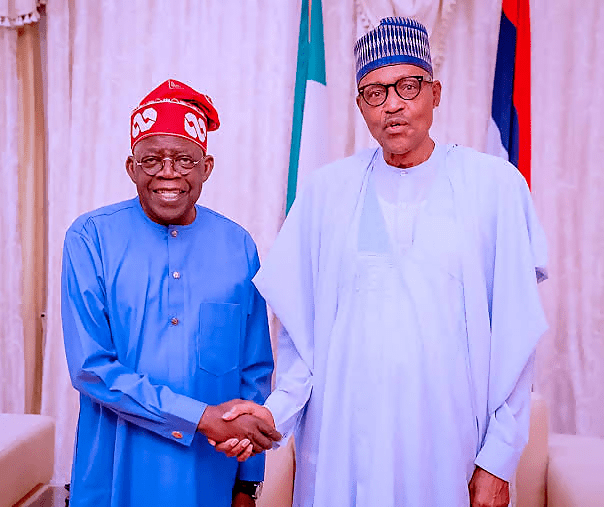As the Buhari administration winds down preparatory to the inauguration of a new government, political appointees and aides are bracing themselves for job losses, LEADERSHIP checks have revealed.
Though the reality of losing their jobs is not unusual, as it is common for incoming administrations to appoint their own people to key positions, the magnitude of the job cuts is however uncertain.
The job loss, our findings showed, depends largely on the policies and priorities of the incoming administration.
In the past, some incoming administrations have opted for a complete overhaul of the government structure, leading to mass layoffs, while others have been measured by their approach, retaining some key personnel while replacing others.
The current situation is complicated by the economic challenges facing the country, which may have fuelled speculations that the incoming president, Bola Ahmed Tinubu may implement the report of the Steve Oronsaye-led presidential Committee on Restructuring and Rationalisation of Federal Government Parastatals, Commissions and Agencies, which recommended the abolition and merger of 102 government agencies and parastatals, while some were listed to be self-funding.
Nigeria is still recovering from a recession that lasted from 2016 to 2017, and the COVID-19 pandemic of 2020 has further strained the economy.
While the government has been struggling to meet its financial obligations, forcing it to borrow heavily for projects, there are concerns that the cost of running the government may be too high.
If the incoming administration decides to reduce the size of the government, it could lead to significant job cuts, with political appointees and aides likely to be the most affected, as these positions are often seen as political patronage.
But not all political appointees and aides are redundant, as some of them may be needed to ensure continuity and stability in government.
Meanwhile, job cuts may not be limited to political appointees and aides; there may be cuts in other sectors of the economy, particularly in government-owned enterprises that have been struggling financially.
No fewer than 2,585 appointees and aides in the presidency and National Assembly will be asked to go.
President Muhammadu Buhari has about 160 political appointees in various capacities, while Vice President Yemi Osinbajo has 80 aides.
In the National Assembly there are statutory 2,345 aides serving 469 lawmakers, 109 Senators and 360 members of the House of Representatives.
The number may be more, given the case of principal officers who may need more aides.
For instance, no fewer than 2,570 aides were engaged by members of the 8th National Assembly, totaling 469, an investigation by the News Agency of Nigeria (NAN) had revealed.
Out of the number, 700 aides worked for lawmakers in the Senate, while the remaining 1, 870 were engaged by members of the House of Representatives.
Apart from the 2,585 appointees and aides whose days are numbered, there are other appointees such as ministers and heads of agencies and parastatals.
LEADERSHIP reports that the number of presidential aides can vary widely depending on the country and the specific president in question.
Some presidents may have relatively few aides, while others may have significantly more.
The number of presidential aides may also be influenced by factors such as the size of the government and the specific responsibilities of the president.
In any case, LEADERSHIP findings further indicate that the incoming administration would need to balance its desire to reduce the size of the government with the need to ensure that essential services are not disrupted.
It will also need to ensure that any job cuts are done in a transparent and fair manner, to avoid accusations of political victimisation.
The likely number of job cuts as Nigeria transits from one civilian government to another is uncertain, but it is clear that most political appointees and aides of the current administration must have to go as it ends its constitutional tenure.
Meanwhile, the transition in government may have some indirect effects on school enrollment, fashion trends, and transportation in Abuja.
The country is likely to witness change in fashion trends, with a lot of people opting to wear the trademark cap of the president-elect, Tinubu, popularly known as the Jagaba (broken chain) cap.
However, a fashion designer in Area 1, Abuja, Abdullahi Aliyu, told LEADERSHIP that the trend is likely to be among the elite politicians and the supporters of Asiwaju Tinubu.
Abuja Schools Prepared For Students’ Surge
Meanwhile, as the new government is set to take over office on May 29, 2023, the number of students attending private schools in the Federal Capital Territory (FCT) is expected to be on the rise.
There are indications that private schools located within the capital city may experience a surge in students’ transfer due to new government appointees.
Amid concerns about the capacity of private schools to handle the likely surge, the owners of the institutions have asserted that they are fully prepared to handle any surge in students that may arise.
The owners, under the aegis of National Association of Proprietors of Private Schools (NAPPS), Federal Capital Territory (FCT), spoke in an interview with LEADERSHIP.
NAPPS president, Mrs Ruth Agboola, who admitted that there would be a surge said the schools are fully prepared.
“It’s true there would be a surge due to new appointees, either political/ administrative. Can assure you that Abuja Schools are adequately prepared for such movement within the metropolis/satellite towns,” she stated.
Also reacting, Olusola Bankole of Bankys Private School, who was the former chairman of NAPPS (FCT) said private schools, especially in FCT, are constantly updating, up scaling, and upgrading for best practices.
She said, “In the last two months, as much as 10 or more professional development as well as administrative support has been put in place to put our schools in good stead, always.
“Having new members of the new administration in FCT bringing their children to our schools will further give many of them the opportunity to enjoy the quality educational services delivery that NAPPS, ACSI, AMIS and other private schools’ associations in the FCT offer”.











